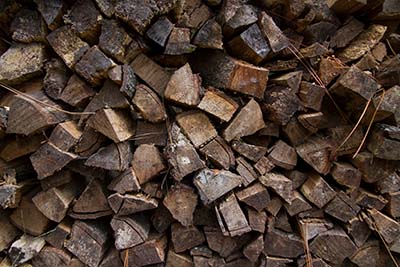Firewood

Fall in Florida is an ideal time for camping, hiking, and gathering around a fire. Unfortunately Florida is a hot spot for invasive insects and other species, and firewood is a well-known culprit. To help protect our natural ecosystems and the forestry industry, be choosy when purchasing firewood.
Our rule of thumb for firewood is “buy local, burn local.”
Hitchhiking Species
Several wood-boring insect pests can spread through untreated, imported firewood. Hitchikers include the Asian long-horned beetle (Anoplophora glabripennis), emerald ash borer (Agrilus planipennis), European wood wasp (Sirex noctilio), and the redbay ambrosia beetle (Xyleborus glaborus). These pests cause physical damage to trees they invade. They can also spread diseases like oak wilt, beech bark disease, and sudden oak death.
Unfortunately it isn’t enough to inspect your firewood yourself. Yes, adult insects are easy to spot, but their eggs are not. To avoid transporting these insects, avoid transporting firewood any further than necessary.
Local Firewood Sources
In 2010 the Florida Department of Agriculture and Consumer Services implemented regulations on untreated firewood. Their aim is to protect Florida’s tree species and ecosystems. For this reason, transporting out-of-state firewood is prohibited without proper permitting.
When you purchase, be sure to ask the seller where the wood was cut. Wood harvested within a 10 miles radius, or from the same county, is ideal. Wood harvested more than 50 miles away is not considered “local.” If you are unable to find local firewood, don’t assume “kiln dried” wood is safe. Instead, look for the USDA seal certifying that it has been heat-treated to kill pests.
For campers, know that most state parks prohibit gathering wood onsite but do sell their own local firewood. They work with a handful of local retailers to ensure wood is available within the area. For excellent information on where to purchase firewood locally, check out The Nature Conservancy’s Don’t Move Firewood campaign.

Before You Leave the Fireside
There are a few things to consider after the festivities. First, try to burn all the wood that you purchase. Transporting firewood is a bad idea, but so is leaving flammable material behind.
Finally, keep in mind that vehicles and gear can harbor pests. Washing your car or camper between trips is another step you can take to avoid transporting pests.
For more information about protecting Florida’s forests, contact your county Extension office.
Also on Gardening Solutions
More from UF/IFAS
From the State of Florida
- Consumer Resources: Firewood Movement Regulations
- FDACS DPI Firewood Brochure (PDF)
- FDACS DPI Rule 5B-65, Firewood and Unprocessed Wood Products
- Florida Forest Service: Forest Insects
Our thanks to Heather Kalaman, UF/IFAS graduate assistant and doctor of plant medicine student, for the contents of this article.
